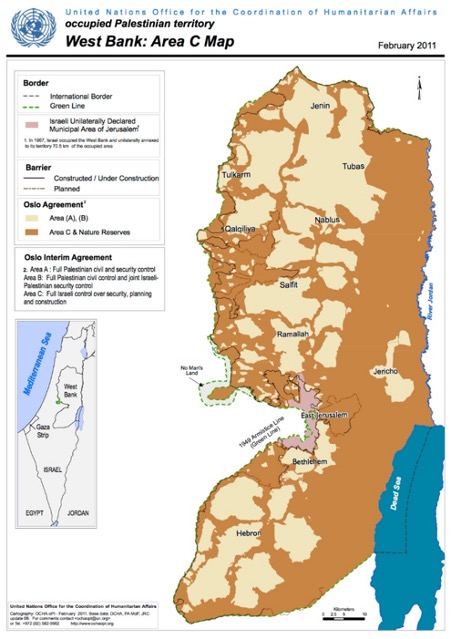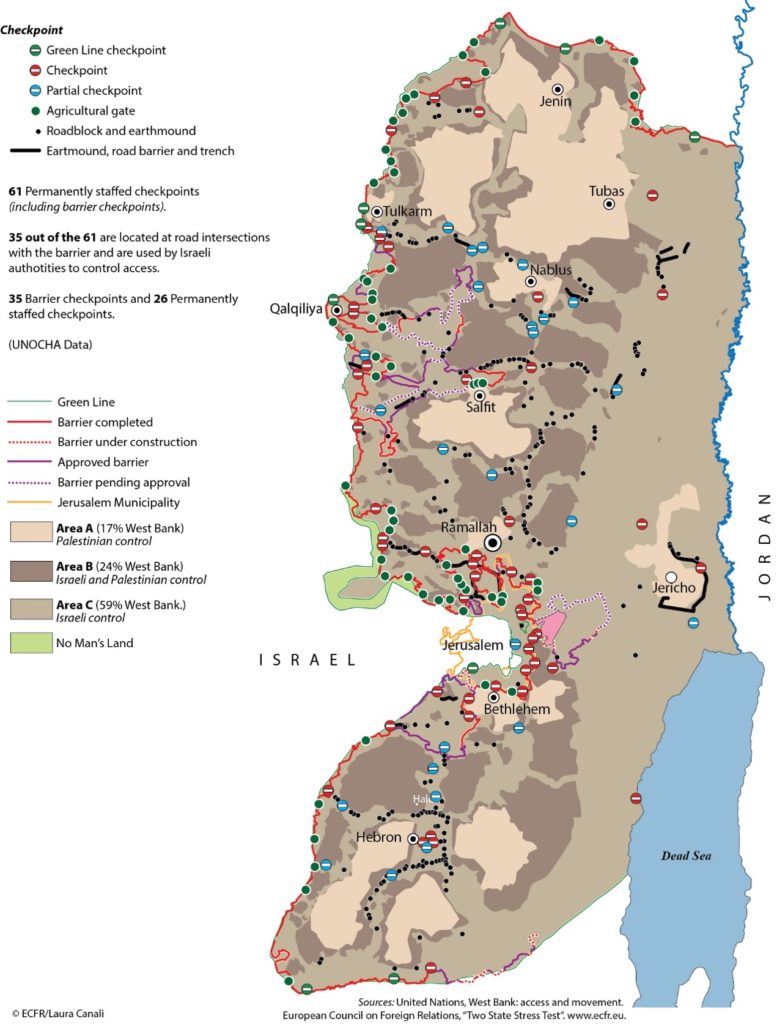In this blog you will find thematic articles based on current issues and aiming at providing an understanding and short analysis of the topic.
*une version française de cet article est disponible > ici <
A month ago, on December 30th, 2022, the General Assembly of the United Nations (UN) adopted a resolution asking the International Court of Justice (the ICJ) to give an advisory opinion on the impact of the Israeli practices on human rights in the occupied Palestinian territories (OPT).
This raises a few questions:
– What are the UN and what competence does they have?
– What is the jurisdiction of the International Court of Justice (ICJ)?
– What is the background of the Israeli occupation of the OPT?
– Why does the UN ask for an advisory opinion now? Has the context changed? What could be its impact?
For answers to the first two questions, check out this article on international institutions, even though a few aspects may be mentioned here.
Read this article to know more about the Israeli occupation of the OPT.
Israeli occupation – background
A little bit of history first…
The creation of the State of Israel has been evoked in 1917, in the Balfour Declaration, stating the British support to “the establishment in Palestine of a national home for the Jewish people.” This issue stayed in the hand of the United Kingdom until the 1940s, with a British mandate to provide administrative guidance for the transition to full independence, but it did not achieve his goal.
In 1947, 30 years after the Balfour Declaration, and after the Second World War, the UN General Assembly adopted resolution 181 (II), establishing a partition plan for the establishment of Israel on 56 per cent of the Palestinian territory. The State of Israel is established a year later, in 1948, but in violation of the 1947 partition plan, leading the displacement of thousands of Palestinians.
Since 1947, Israel has been taking more and more of the Palestinian territory, by the use of force and creating new conflicts. In 1967, during the “six days war”, Israel invaded part of the remaining Palestinian territory, leading to more displacements.
The maps below show the partition of Israel and Palestine as well as which parts of Palestine are under Israeli control, Palestinian control, or mixed control.


Violations of International Law, International Human Rights Law, and International Humanitarian Law (IHL)
The violations committed by Israel on the Palestinian territory and against Palestinians are still ongoing, including violence, discrimination, special treatments, etc. See the UN news for information : https://news.un.org/en/search/palestine
Israel violates
- International Law as the State of Israel is part of the international community and is subject to customary international law and has obligations under the treaties and instruments it ratified;
- International Human Rights Law is a special part of International Law dealing with duties States have to uphold and protect human rights;
- International Humanitarian Law (IHL) as Israel is an occupying force in Palestine, violation the laws of war. IHL applies to situations of conflicts.
If you would like to know more about human rights and humanitarian law, click here; about international law, click here.
Here are a few violations committed by Israel (and the related instrument)
• Self-determination (UN Charter)
• Occupying force > violation of IHL (Geneva Conventions)
• Right to life (International Covenant on Civil and Political Rights)
• Torture, mistreatments (Convention against Torture and Other Cruel, Inhuman or Degrading Treatment or Punishment)
• Right to education (Convention on the Rights of the Child)
• Discriminations (International Convention on the Elimination of All Forms of Racial Discrimination)
International reactions
If Israel has been violating Palestinian rights for over 70 years, what has been the reaction of the international community to these blatant violations of international law?
Since 1947, the UN has repeatedly taken position against the occupation of Palestine and for the respect of the rights of the Palestinian people:
- UN General Assembly, resolution 194 (1948): right to return home and right for a compensation. Adopted after the 1947 invasion, this is not respected by Israel.
- UN Security Council, resolution 242 (1967): right of an independent State without interference and with defined borders in which Palestinians will live in dignity. The UN reaffirms this right after the Six days war.
- UN General Assembly, resolution 3236 (1974): reaffirms the “inalienable right” of return of Palestinian refugees from both the 1948 and 1967 hostilities.
- N Security Council, resolution 1397 (2002) : reaffirms the vision of a region where two States would live side by side within secure and recognised borders.
In addition, several mechanisms or entities have been created by the UN to deal with this issue:
- UN General Assembly, resolution 3376 (1975) established the Committee on the Inalienable Rights of the Palestinian People;
- An independent, international commission of inquiry with a mandate to investigate in the Occupied Palestinian Territory and in Israel all alleged violations of IHL and of international human rights law leading up to and since 13 April 2021 has been created by UN Human Rights Council resolution A/HRC/RES/S-30/1(2021);
- Moreover, the UN Human Rights Council, which mandate is to monitor and review the UN Member States’ respect of human rights, follow a 10 items Agenda, one of these idem focusing solely on the OPT issue. This is the only country issue that is permanently discussed by the Human Rights Council, at each session.
Attempts to resolve the conflict have been initiated and are still ongoing, giving rise to several agreements which however have not had the expected effects:
- 1993 Declaration of Principles on Interim Self-Government Arrangements (Oslo I).
- 1997 Israeli-Palestinian Interim Agreement on the West Bank and the Gaza Strip (Oslo II).
Activities of the international jurisdictions
The International Criminal Court (ICC) opened, on March 3rd, 2021, an investigation into the Situation in the State of Palestine since 2014.
To know more, check out this page: https://www.icc-cpi.int/palestine
The International Court of Justice (ICJ) gave another advisory opinion in 2004, at the request once again of the UN General Assembly, regarding the legality of the construction, by Israel, of a wall surrounding the OPT. The opinion recognised the illegality of this construction and the violation, inter alia, of the 4th Geneva Convention (IHL), the 1907 Hague Conventions (law of war), and both 1976 International Covenants on Civil and Political Rights and on Economic, Social and Cultural Rights.
See Legal consequences of the construction of a wall in the occupied Palestinian territory, Advisory opinion, July 9th, 2004
The UN General Assembly has requested an advisory opinion from the ICJ, for the second time regarding the situation in the OPT, on December 30th 2022 through resolution 77/247 “Israeli practices affecting the human rights of the Palestinian people in the Occupied Palestinian Territory, including East Jerusalem”.
Why this new request?
Over the last few years, violations of human rights and of humanitarian law (since it is a state of occupation, condemned under international humanitarian law), have significantly increased, including building demolitions that impact the rights to housing, to education, and to healthcare. It is in light of these continuing and growing violations that the General Assembly adopted resolution 77/247.
Reminding the State of Israel of international law principles and previous UN resolutions, the General Assembly stresses, for pages, its concerns, and demands Israel to respect its duties under international law and the international community to show solidarity with the Palestinian people. It ends the resolution by requesting an advisory opinion from the ICJ on the rules and principles of international law relating to:
(a) […] the legal consequences arising from the ongoing violation by Israel of the right of the Palestinian people to self-determination, from its prolonged occupation, settlement and annexation of the Palestinian territory occupied since 1967, including measures aimed at altering the demographic composition, character and status of the Holy City of Jerusalem, and from its adoption of related
discriminatory legislation and measures?
(b) […] the policies and practices of Israel referred to in paragraph 18 (a) above affect the legal status of the occupation, and what are the legal consequences that arise for all States and the United Nations from this status?
At present, the ICJ accepted the request. To follow with the process, check out this link.
Limits: non-binding instruments
Not all UN resolution have a binding nature (see https://ask.un.org/faq/15010) and the advisory opinions of the International Court of Justice are solely opinions and do not bind States.
These international actions bring light to issues and violations and call the international community to act. Due to their non-binding nature, do not “have” to be respect and followed by States but the advisory opinion will give greater weight to the pressures put on Israel to acknowledge its responsibility for the violations and to remedy them. The conclusions stated on the opinion may also be useful for the ongoing investigation of the International Criminal Court.
“Despite having no binding force, the Court’s advisory opinions nevertheless carry great legal weight and moral authority. They are often an instrument of preventive diplomacy and help to keep the peace. In their own way, advisory opinions also contribute to the clarification and development of international law and thereby to the strengthening of peaceful relations between States.”
Sources:
History https://www.un.org/unispal/history/
On Palestine and the UN:
For information on Palestine https://news.un.org/en/search/palestine
For information on the Committee on the Inalienable Rights of the Palestinian People
https://press.un.org/en/committee-inalienable-rights-palestinian-people
To learn more about Israeli violations:
